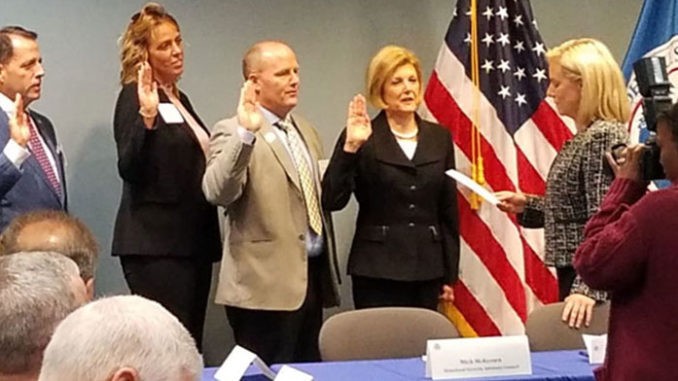
The head of the Department of Homeland Security dismissed more than 90 percent of his advisory council on Friday, while admitting he has no immediate plan for ensuring he can still receive timely advice on furthering the department’s ability to prevent and respond to national emergencies and major disasters.
Secretary Alejandro Mayorkas told all but three members of the independent, non-partisan Homeland Security Advisory Council (HSAC) that their services were no longer needed, effective immediately.
“In the service of an orderly transition to a new model for the HSAC, I have ended the current HSAC members effective March 26, 2021,” Mayorkas wrote in a form letter with a generic “Dear Members” salutation, even though some members had served on HSAC for years.
While it is common for a new administration to reorganize, some officials question the timing -and the wisdom- of making such a wholesale change at a time when many local, state, and federal law enforcement officials are on heightened alert at the U.S. / Mexico border.

They also pointed to Mayorkas’ admission in his letter that a “redesigned and reconstituted HSAC” has yet to be developed, something the secretary expects to do “in the next few weeks.”
One member whose HSAC service abruptly ended Friday is Cochise County Sheriff Mark Dannels, who was sworn in on the council in September 2018 by then-Secretary of Homeland Security Kirstjen Nielsen.
Dannels, the first sheriff to be appointed to the council, is the chief law enforcement officer for 6,200 square miles of southeast Arizona with 83 miles of shared border with Mexico. He is also chair of the National Sheriffs’ Association border security committee.
When Nielsen made her appointments in 2018, she noted the important role HSAC plays in improving coordination among state, local, and tribal governments, as well as first responders, the private and non-profit sectors, academia, and research communities.
“The department relies on the unique perspectives and strategic advice provided by HSAC members to help address emerging threats in a rapidly changing world,” Nielsen said.
According to the Homeland Security website, a new HSAC charter was filed with Congress on March 11. It calls for about 40 “professionally, technically, and culturally diverse” members with broad-ranging experience and education to be appointed to HSAC to provide “organizationally independent, strategic, timely, specific and actionable advice” to Mayorkas and his senior leadership.
“These members shall all be national leaders found within diverse and appropriate professions and communities nationwide,” the charter states, adding that the members serve as Special Government Employees at the pleasure of the Secretary.
Mayorkas may have gutted the HSAC, but his letter announced that HSAC Commissioner William Bratton and Vice Chair Karen Tandy will remain, as well as 97-year-old Chair Emeritus William Webster, a retired judge who served as both CIA director and FBI director.
Bratton, age 73, is a former New York City Police Commissioner and former Los Angeles Police Chief who has not held an active law enforcement position for more than five years. Tandy, a former head of the Drug Enforcement Administration, left that agency in 2007 and went to work for telecom company Motorola.
All weblinks to prior lists of HSAC members now redirect the current webpage listing only Bratton, Tandy, and Webster.
